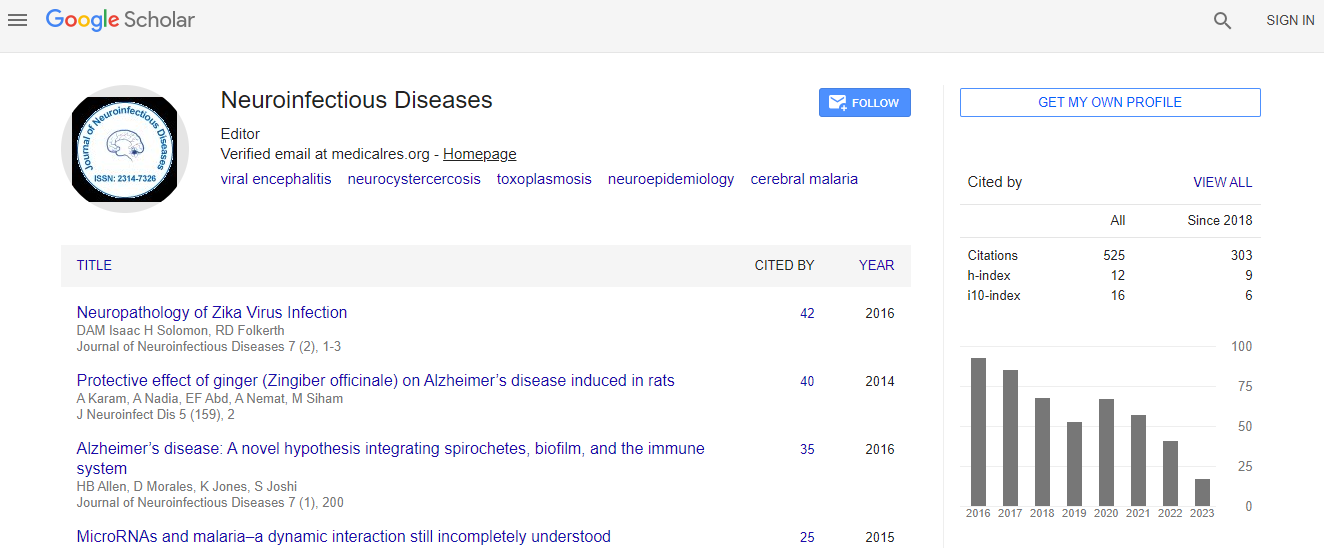Case Report
Reversible Splenial Lesion Syndrome (RESLES) in a Patient with Clinically Mild Tick-Borne Encephalitis and Hyponatremia
| Thomas Grimm1, Filip Barinka1, Martin Uhl1, Wilhelm Schulte-Mattler1, Berthold Schalke1, Schuierer Gerhard1, Ulrich Bogdahn1 Gerhard Schuierer2, Susanne Schwab-Malek1, Klemens Angstwurm1, Peter Hau1, Markus Hutterer1 | |
| 1University Hospital Regensburg, Department of Neurology, Regensburg, Germany | |
| 2 University Hospital and Regional Hospital Regensburg, Center of Neuroradiology, Regensburg, Germany | |
| Corresponding Author : | Markus Hutterer MD Department of Neurology and Wilhelm-Sander NeuroOncology Unit University of Regensburg Franz-Josef- Strauß-Allee 11 D-93053 Regensburg Germany Tel: 004909419413200 Fax: 004909419413205 E-mail: Markus.Hutterer@ukr.de |
| Received September 30, 2015; Accepted October 21, 2015; Published October 29, 2015 | |
| Citation:Grimm T, Barinka F, Uhl M, Schulte-Mattler W, Schalke B et al. (2015) Reversible Splenial Lesion Syndrome (Resles) in a Patient with Clinically Mild Tick- Borne Encephalitis and Hyponatremia. J Neuroinfect Dis 6:192. doi:10.4172/2314-7326.1000192 | |
| Copyright: © 2015 Grimm T, et al. This is an open-access article distributed under the terms of the Creative Commons Attribution License, which permits unrestricted use, distribution, and reproduction in any medium, provided the original author and source are credited. | |
| Related article at Pubmed, Scholar Google | |
Abstract
Introduction: Reversible splenial lesion syndrome (RESLES) is a clinicoradiological syndrome of varied etiology, characterized by transient lesions involving the splenium of the corpus callosum (SCC). Clinical presentation is nonspecific and depends on etiology. In the case of infectious disease the syndrome is also called mild encephalitis with reversible splenial lesion (MERS). Hyponatremia is often described in patients with RESLES. Here we present a patient case of RESLES/MERS in a patient with tick-borne encephalitis (TBE) accompanied by mild hyponatremia. Case Presentation: A 46-year-old man presented with malaise, fever, headache, discrete nuchal rigidity, brain stem symptoms (disturbance of ocular movements, gait ataxia) and mild cognitive and psychomotor impairment. Cerebrospinal fluid analysis at two different time points showed a lymphocytic pleocytosis and seroconversion for anti-TBEIgM/- IgG, serum biochemical analysis a mild hyponatremia. Magnetic resonance imaging (MRI) of the brain on day four after admission revealed a distinct signal hyperintensity on T2/FLAIR sequences in the SCC associated with diffusion restriction and low apparent diffusion coefficient (ADC) values on diffusion-weighted sequences. On T1-weighted images no contrast enhancement was detectable. Until the diagnosis of TBE the patient was treated with intravenous ceftriaxone, ampicillin and acyclovir. The patient recovered completely within three weeks. The T2/FLAIR hyperintense and diffusion-restricted lesion of the SCC was completely resolved ten days after the first MRI. Conclusion: TBE accompanied by hyponatremia may lead to RESLES/MERS, a clinicoradiological syndrome with reversible non-enhancing lesion of the SCC and excellent prognosis. Neuroradiological findings in RESLES are very similar to findings described in patients with osmotic demyelination syndromes like central pontine myelinolysis or extrapontine myelinolysis.

 Spanish
Spanish  Chinese
Chinese  Russian
Russian  German
German  French
French  Japanese
Japanese  Portuguese
Portuguese  Hindi
Hindi 
